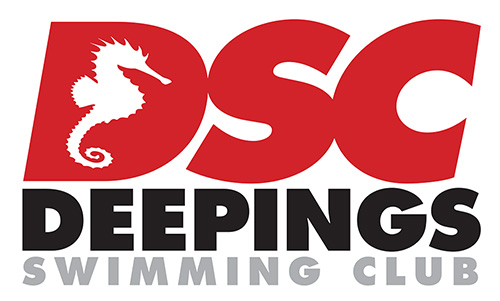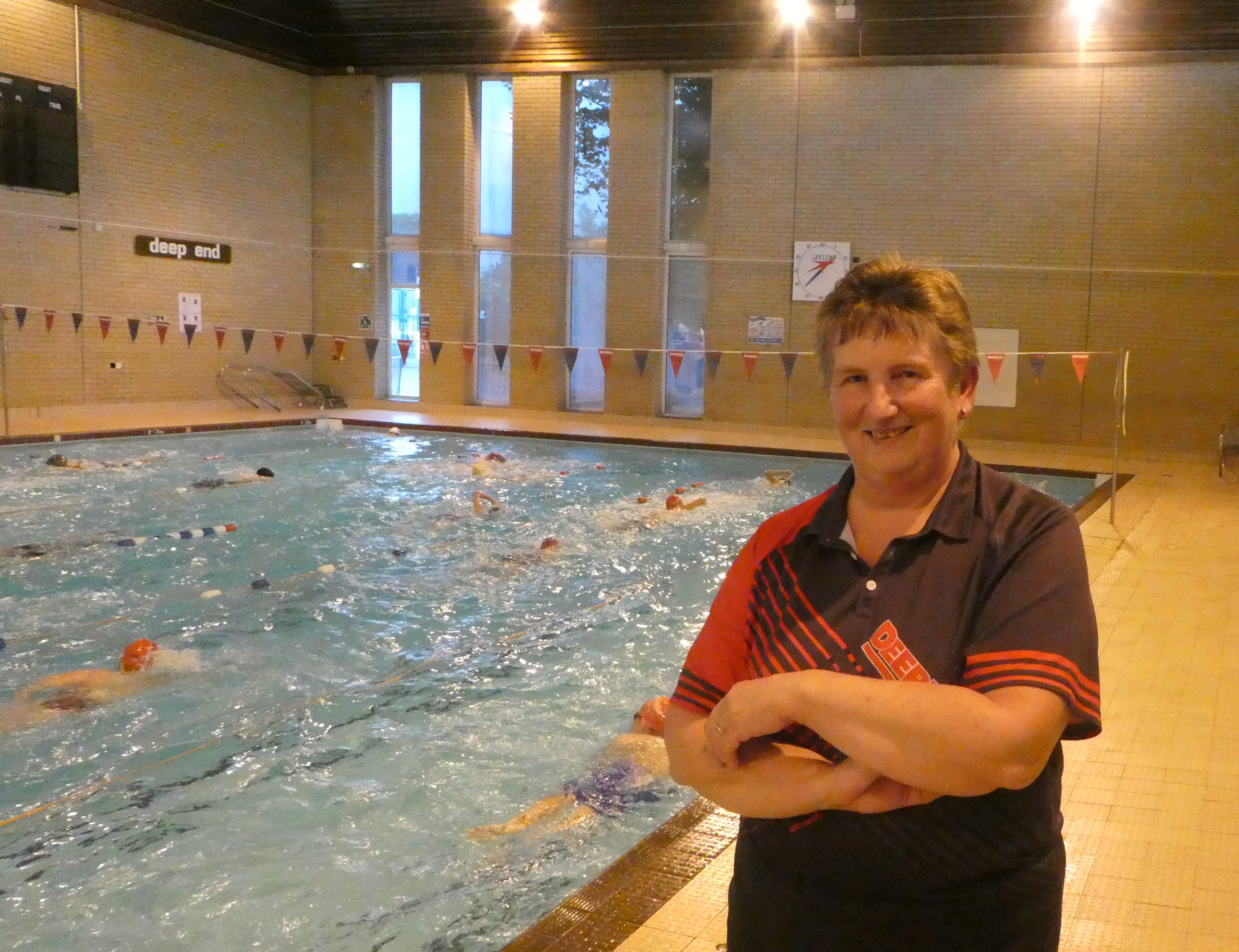
Interview with Lynn Chapman, Deepings head coach
28 Nov 2018
Lynn Chapman profile
Never work with animals or children, so the old adage goes. Deepings head coach Lynn Chapman has spent a career doing both – and has loved every minute of it.
After gutting fish for hungry dolphins and grooming champion race horses, Lynn turned to her first love of swimming in the Nineties, teaching learner swimmers before becoming a full-time swim coach in 2001.
She has enjoyed outstanding success, coaching 12 national swimmers in every stroke and distance with five winning international honours, and has been involved in British Swimming talent camps and British para swimming.
We caught up with Lynn on poolside to find out what continues to drive her.
Q: How did you first get involved in swimming?
I used to work as a groom with horses, at riding schools, show ponies and show jumping. My last job was race horses. I had the summer off so I started as a lifeguard, then became duty manager and then I did a teaching course and tutoring. My first coaching job was at South Lincs where I worked for five years, three as assistant and two as head coach. I joined Deepings in 2006.
Q: Did you used to swim competitively?
Yes, I’ve always swam – my preferred stroke is breaststroke. At school, I won the plunge every year, where you dive in and see how far you get without taking a stroke. I’m very good at floating and holding my breath! I also swam at Knottingley Swimming Club [in Yorkshire].
Q: What have been your proudest moments as a swimming coach?
When I got my first national qualifying swimmer which was in the 800m. All national qualifiers are special, but some of my best memories don’t involve nationals. It’s the kids that have persevered and then suddenly achieve – those are the best moments.
Q: Who are your favourite swimmers?
Mark Forster and Hannah Miley. A personal highlight of my career was walking into Mark Foster at the nationals – literally, I bumped into his chest!
Hannah Miley is a real work horse. She swims every event possible. I’ve been at meets where she’s doing 800m one minute then get out and doing the 400IM final. She has the right attitude.
Q: What was your involvement with British Swimming?
I’ve been involved in British Swimming talent camps and in para swimming. Going to nationals with paras is a completely difference experience. Their attitude is excellent, they don’t throw their toys out of the pram - there are no divas!
One of the things I have realised from working with the British coaches is that we are doing things the right way here. Mixing with other coaches is always beneficial. Everyone is open, especially the good coaches – they share their ideas and welcome questions.
Q: What advice do you have for up-and-coming swimmers?
Work hard, set goals, enjoy it and listen to the coaches. Setting goals is the biggest thing. Twice a year, I do a 5-10 minute one-to-ones on poolside with each swimmer on how the season has gone so far and their future goals. Then we look back at their achievements since the last meeting. You have to have a goal to achieve and it’s the journey that is the key.
Q: What about tips for new swimmers?
Beginners should focus on skills, listen to the coach and attend as many sessions as they can. They should be doing all the strokes and not specialising. Young swimmers are IM’ers, they don’t have a best stroke yet as it is always changing as they grow and mature.
Q: What makes a great swimmer?
The ability to get up when you’ve been knocked down, to forget disappointments and come back fighting. You also have to commit to time and be willing to change yourself and your technique – that can be difficult sometimes because it doesn’t feel right. And you have to believe in yourself. Common mistakes I see, even among senior swimmers, is a lack of attention to basic skills – streamlining, distance off wall, speed of turns and drilling slowly, not too fast.
Q: Swimmers tend to focus on their times, but what makes a good race from your point of view?
Swimmers should not focus on PBs! A good race isn’t necessarily when you swim a best time, and a PB isn’t necessarily a good race. Parents need to understand this as well. A good race is where someone has given 100% effort and they have worked on the race plan agreed with the coach beforehand. Improvements are about race skills and technique. There is nothing worse than a kid in tears because they haven’t PB’ed and think they’ve had a bad race. If they have put together all the components of the race – start, underwater work, stroke, turns – it’s been a good race.
Q: You’ve been at Deepings for 12 years now – how do you look back on that time and what have been the big challenges?
I’ve had good and bad times. Deepings is a friendly club and there’s a wide variety of swimmers and abilities which means there are plenty of challenges, but I’m able to make changes and I’m given the ability to improve each year. One challenge was to change swimmers’ mind-sets to attending all sessions, especially early morning. Educating parents is another one – and it never ends! It’s about the events their swimmers should do, nutrition, why they need to train and how a child develops. And it’s about having realistic expectations.
Q: What are you excited about for the coming season?
I’m excited to see my swimmers come back after a good break and swim hard – they are enjoying it and they are swimming fast. They are hungry for the season; they’ve seen what others have achieved and they want it as well. Everyone is raising their game and that’s exciting for the coaches.
Q: Who has been the biggest influence in your career?
Roy Claxton who was coach and founder of South Lincs. I did my first preliminary teaching qualification with him and went through advanced teacher, level two teacher and then tutoring. If I needed any coaching advice I would always go to him. He could be a bit of a grump, but if you worked hard he would do anything to help you.
Mark Perry was also a big influence. He set me on my coaching career when he asked me to be his assistant coach. He’s now coaching the Canadian open water national team.
Q: Tell us one interesting thing about you that none of our swimmers know.
I used to work with dolphins at Scarborough Zoo and Marine Land when I left school. They were called Flipper and Genky – two fabulous creatures. But it did mean I smelt of fish all day! They are intelligent creatures. You had to walk out on a board over the pool to feed them and if they were in a mischievous mood, they’d swim over, swipe you and you’d end up in the water with them!
